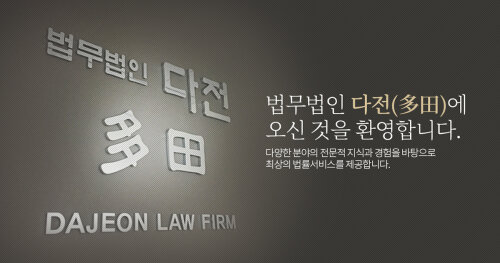Best Bankruptcy & Debt Lawyers in Seoul
Share your needs with us, get contacted by law firms.
Free. Takes 2 min.
List of the best lawyers in Seoul, South Korea
About Bankruptcy & Debt Law in Seoul, South Korea:
Bankruptcy & Debt law in Seoul, South Korea deals with legal matters related to individuals or businesses that are unable to repay their debts. It provides a process for debtors to seek financial relief and protection from their creditors. Bankruptcy & Debt law aims to balance the interests of creditors and debtors while ensuring a fair resolution of outstanding debts.
Why You May Need a Lawyer:
You may need a lawyer specializing in Bankruptcy & Debt in Seoul, South Korea if you are facing overwhelming debt, considering filing for bankruptcy, dealing with creditor harassment, negotiating debt settlements, or need legal advice on debt management strategies. A lawyer can help you navigate the complex legal procedures, protect your rights, and advocate for your best interests during debt-related matters.
Local Laws Overview:
In Seoul, South Korea, Bankruptcy & Debt laws are primarily governed by the Debtor Rehabilitation and Bankruptcy Act. This law provides a framework for debt rehabilitation, bankruptcy proceedings, debt restructuring, and creditor rights protection. Debtors have several options under this law, including rehabilitation proceedings, bankruptcy proceedings, and debt repayment plans supervised by the court. It is essential to comply with the legal requirements and procedures set forth in this Act to effectively address debt-related issues.
Frequently Asked Questions:
1. What is the difference between bankruptcy and debt rehabilitation in Seoul, South Korea?
In bankruptcy, the debtor's assets are liquidated to repay creditors, while in debt rehabilitation, the debtor undergoes a court-supervised debt restructuring process to repay debts over time while retaining certain assets.
2. Can I file for bankruptcy multiple times in Seoul, South Korea?
Yes, you can file for bankruptcy multiple times in South Korea, but there are limitations on the frequency of filing and eligibility criteria for each filing.
3. How long does the bankruptcy process typically take in Seoul, South Korea?
The bankruptcy process in Seoul, South Korea can vary in duration depending on the complexity of the case, but it usually takes several months to a few years to complete.
4. Will bankruptcy stop creditor harassment in Seoul, South Korea?
Yes, filing for bankruptcy in Seoul, South Korea will trigger an automatic stay, which prohibits creditors from engaging in debt collection activities, including harassment, while the bankruptcy proceedings are ongoing.
5. Can I choose which debts to include in my bankruptcy filing in Seoul, South Korea?
No, in Seoul, South Korea, all debts must be declared in the bankruptcy petition, and you cannot selectively choose which debts to include or exclude.
6. What are the consequences of declaring bankruptcy in Seoul, South Korea?
Declaring bankruptcy in Seoul, South Korea can have long-term consequences on your credit score, financial reputation, and ability to obtain future credit. It is advisable to seek legal advice before proceeding with bankruptcy.
7. Is debt settlement an alternative to bankruptcy in Seoul, South Korea?
Yes, debt settlement is an alternative to bankruptcy in Seoul, South Korea, where creditors agree to accept a reduced amount to settle the outstanding debt. It is essential to negotiate debt settlements carefully to avoid legal repercussions.
8. Can a lawyer help me negotiate with creditors in Seoul, South Korea?
Yes, a lawyer specializing in Bankruptcy & Debt in Seoul, South Korea can help you negotiate with creditors, develop debt repayment plans, and represent your interests in legal proceedings related to debt resolution.
9. What are the eligibility criteria for debt rehabilitation in Seoul, South Korea?
To qualify for debt rehabilitation in Seoul, South Korea, debtors must meet certain criteria set forth in the Debtor Rehabilitation and Bankruptcy Act, such as having a regular income source, demonstrating a willingness to repay debts, and complying with court-mandated repayment plans.
10. Are there alternatives to bankruptcy for resolving debt issues in Seoul, South Korea?
Yes, there are alternatives to bankruptcy in Seoul, South Korea, including debt consolidation, debt management plans, debt counseling, and informal negotiations with creditors. It is advisable to explore all options with the guidance of a legal professional before making a decision.
Additional Resources:
If you need legal assistance regarding Bankruptcy & Debt in Seoul, South Korea, you can contact the Seoul Bar Association or the Korean Legal Aid Corporation. These organizations provide legal aid services, referrals to qualified lawyers, and information on debt relief options available to individuals and businesses in Seoul.
Next Steps:
If you require legal assistance in Bankruptcy & Debt in Seoul, South Korea, it is advisable to consult with a qualified lawyer specializing in this area of law. A lawyer can assess your financial situation, recommend appropriate legal remedies, guide you through the legal process, and protect your rights during debt-related proceedings. Be sure to gather all relevant financial documents, such as income statements, debt statements, and asset information, before meeting with a lawyer to facilitate the assessment of your case.
Lawzana helps you find the best lawyers and law firms in Seoul through a curated and pre-screened list of qualified legal professionals. Our platform offers rankings and detailed profiles of attorneys and law firms, allowing you to compare based on practice areas, including Bankruptcy & Debt, experience, and client feedback.
Each profile includes a description of the firm's areas of practice, client reviews, team members and partners, year of establishment, spoken languages, office locations, contact information, social media presence, and any published articles or resources. Most firms on our platform speak English and are experienced in both local and international legal matters.
Get a quote from top-rated law firms in Seoul, South Korea — quickly, securely, and without unnecessary hassle.
Disclaimer:
The information provided on this page is for general informational purposes only and does not constitute legal advice. While we strive to ensure the accuracy and relevance of the content, legal information may change over time, and interpretations of the law can vary. You should always consult with a qualified legal professional for advice specific to your situation.
We disclaim all liability for actions taken or not taken based on the content of this page. If you believe any information is incorrect or outdated, please contact us, and we will review and update it where appropriate.
Browse bankruptcy & debt law firms by service in Seoul, South Korea
Seoul, South Korea Attorneys in related practice areas.















